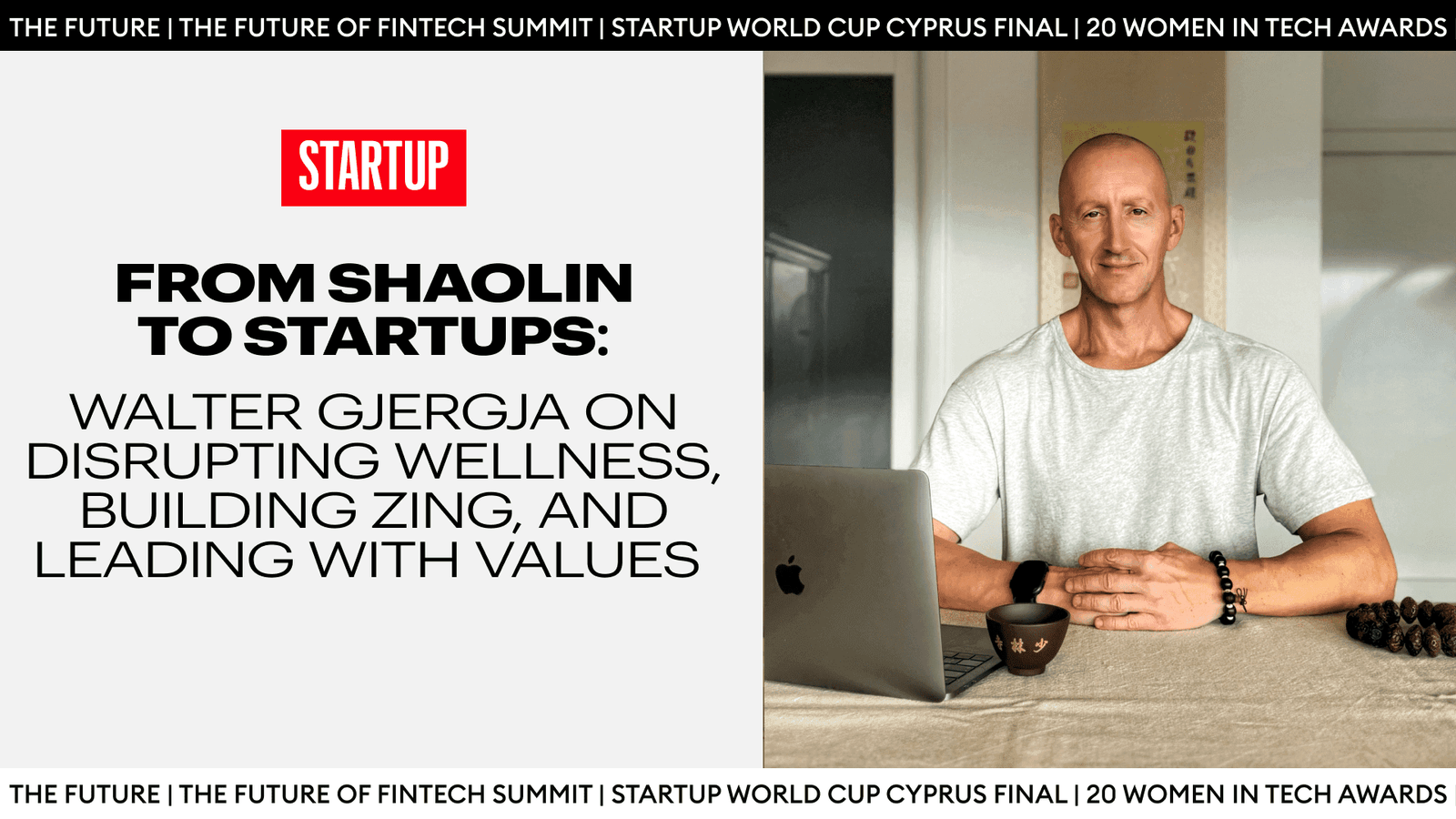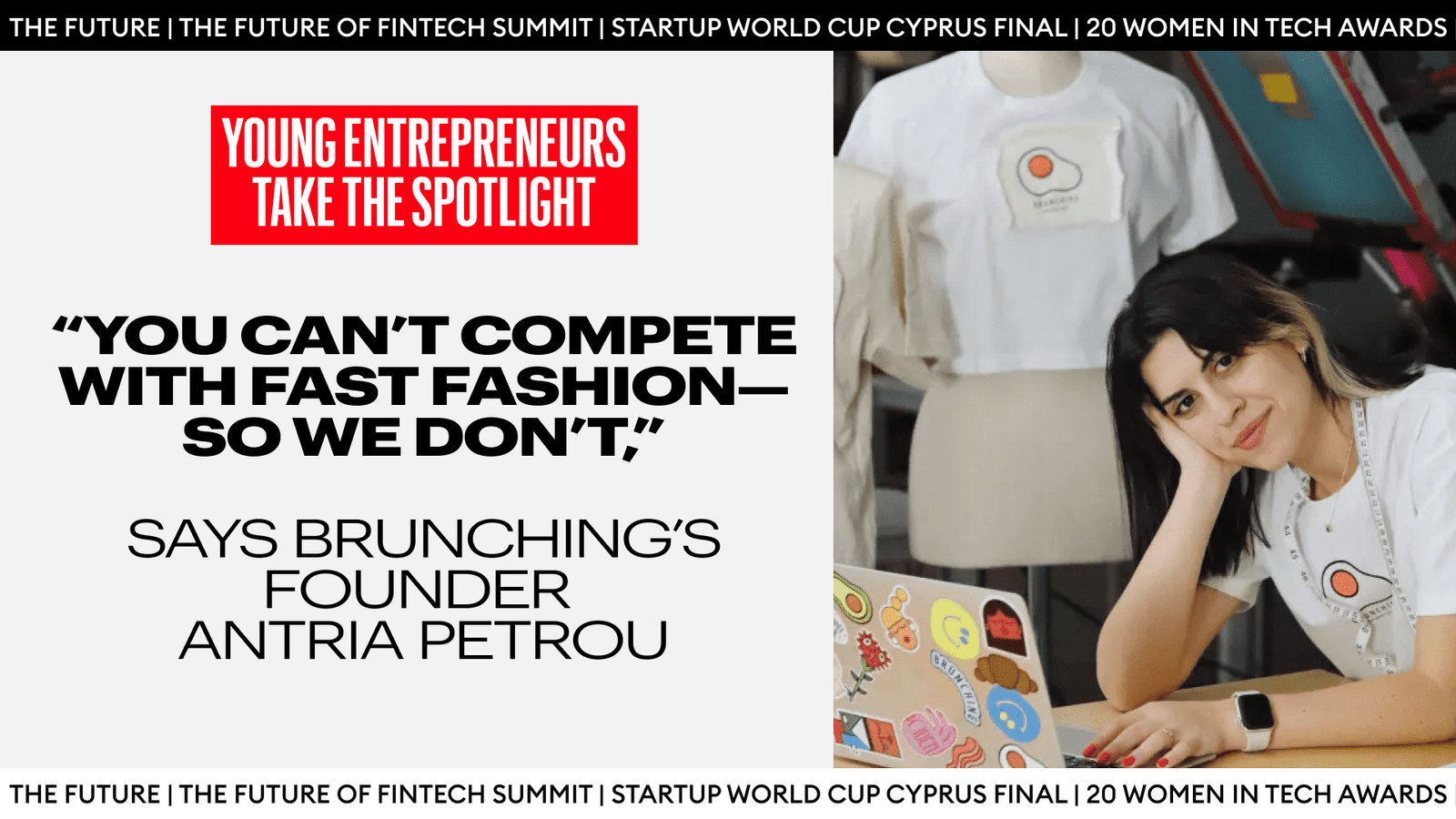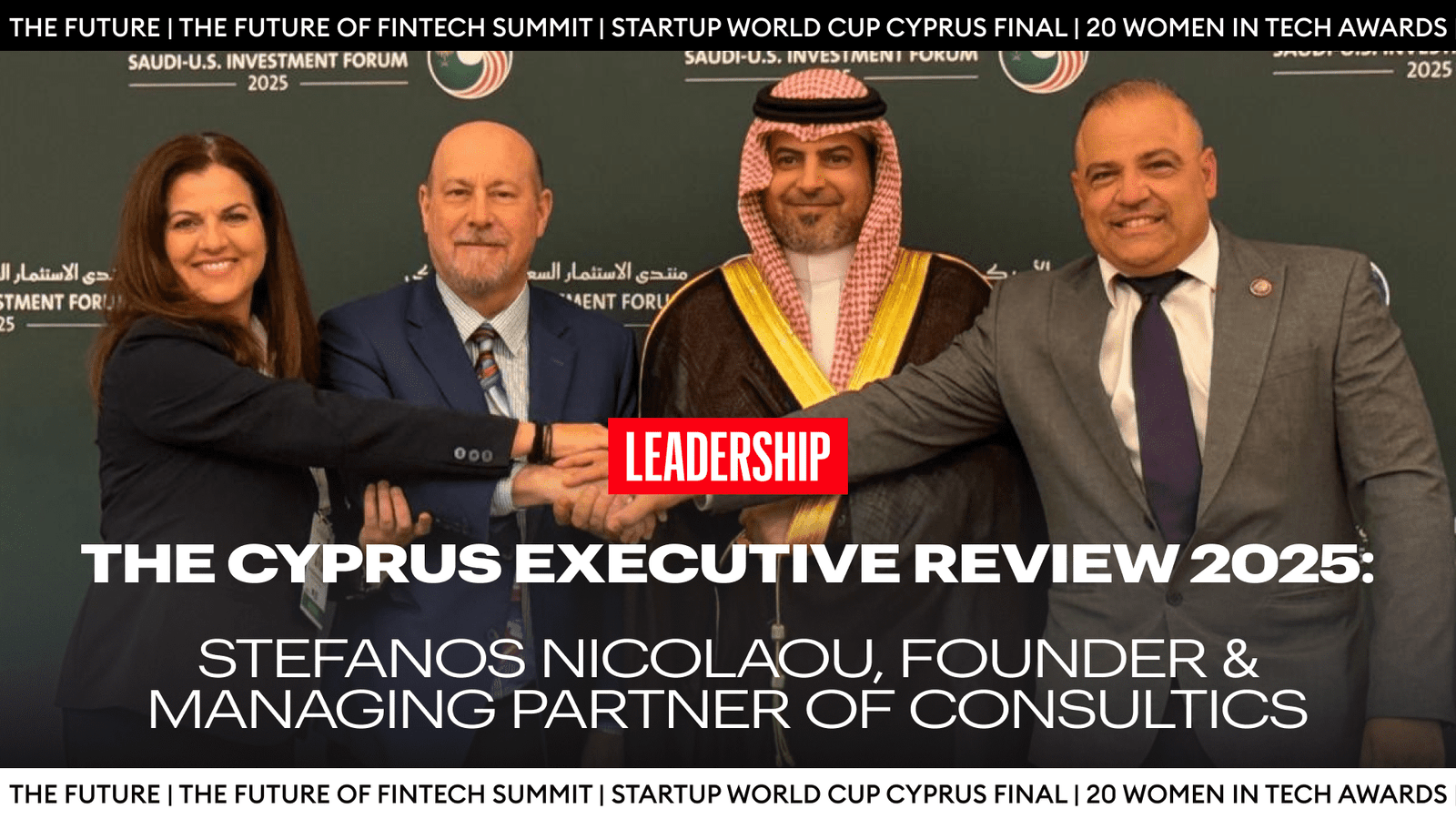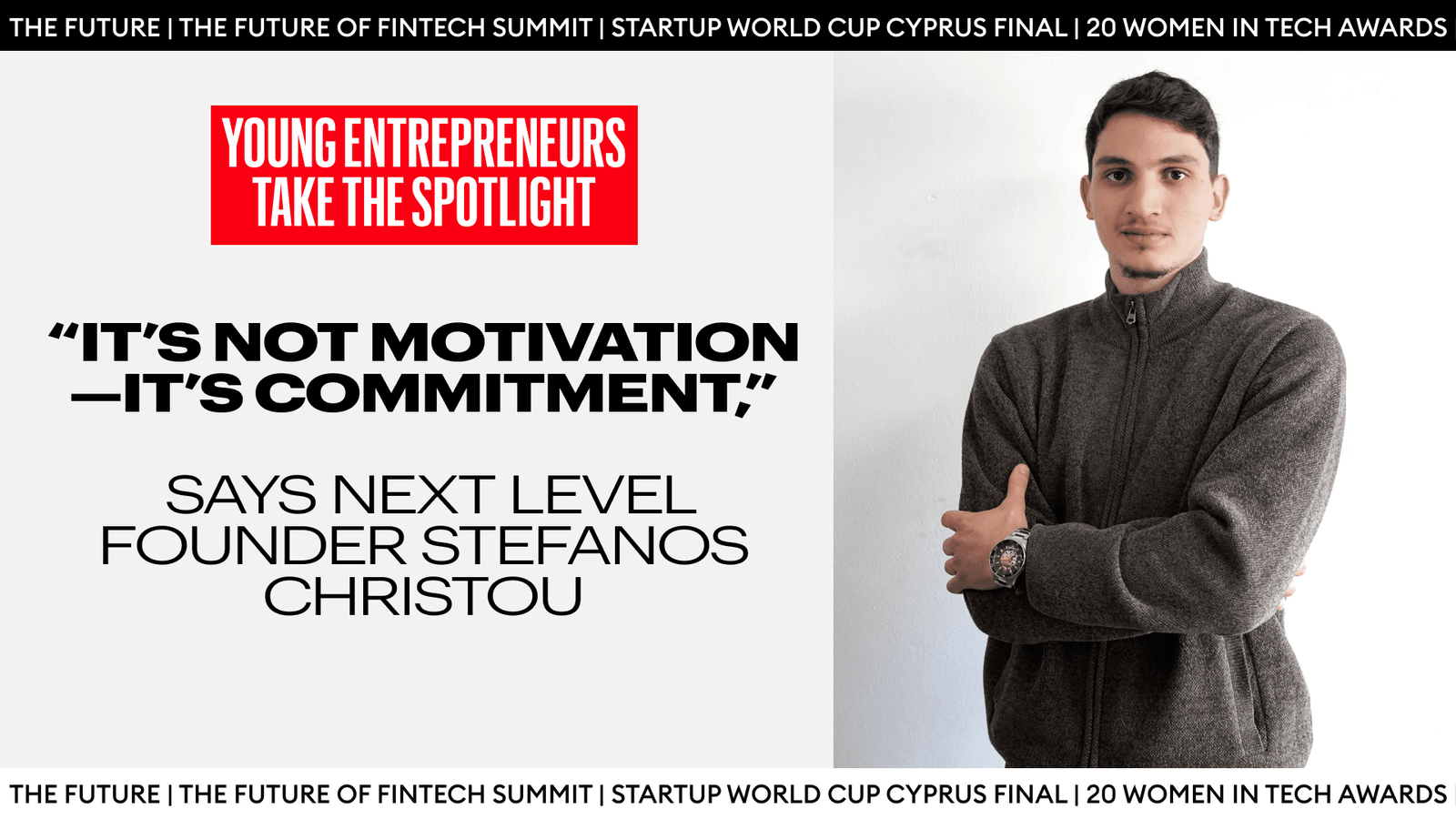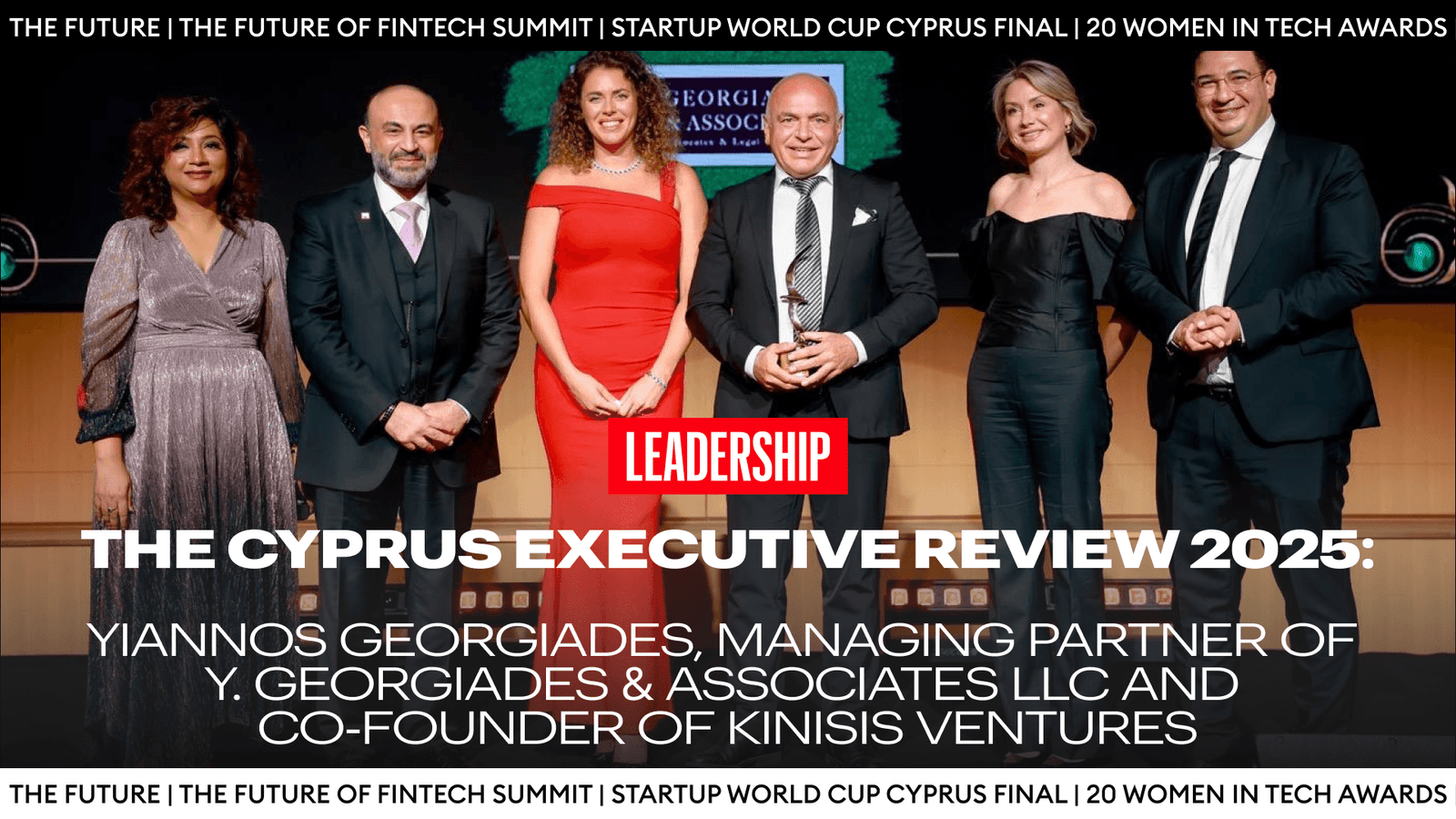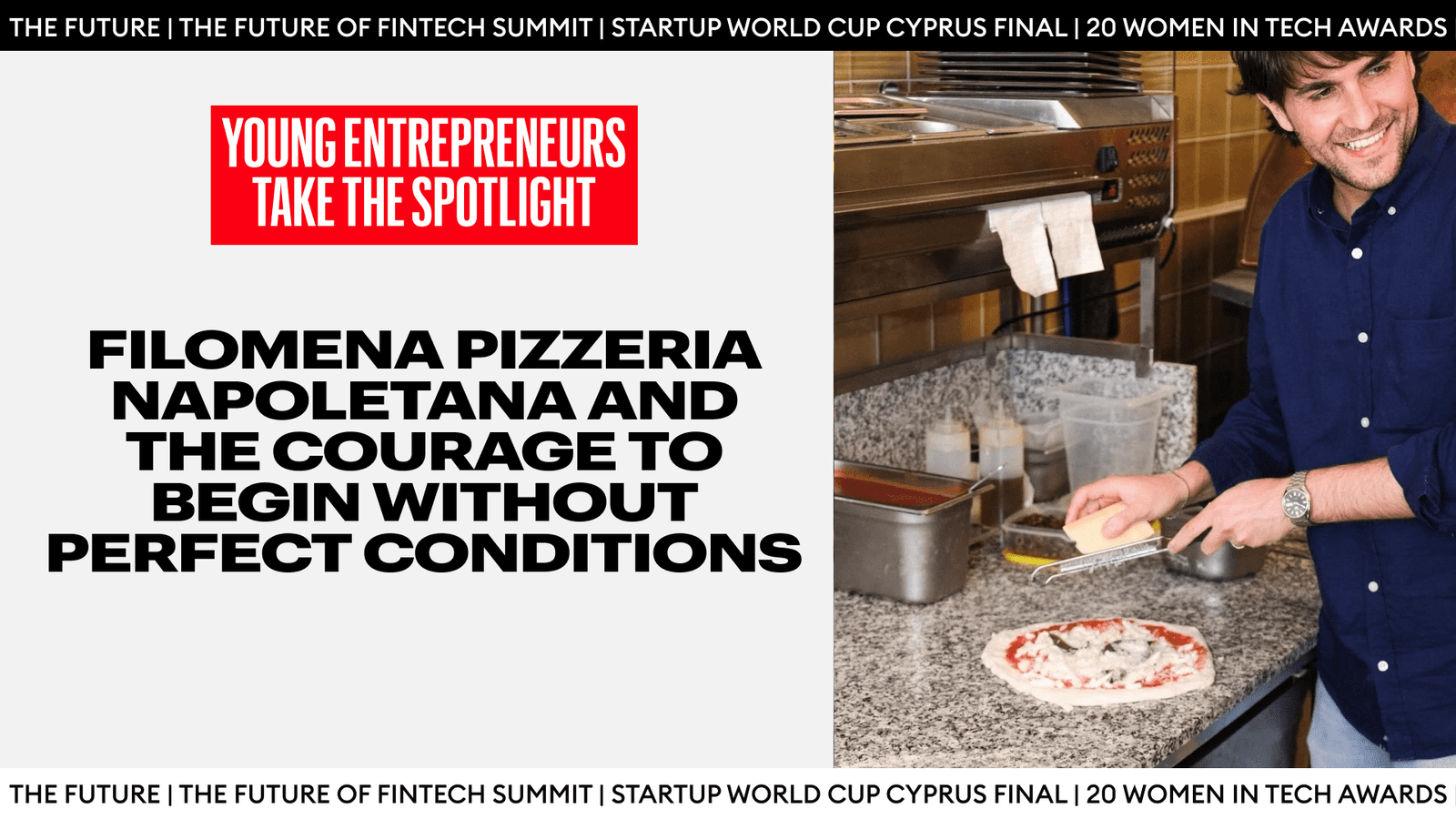With over 500,000 monthly active users and $10 million in recent funding, Zing Coach isn’t just another fitness app. It’s redefining what personalized wellness can look like at scale. At the heart of it is Walter Gjergja, a Shaolin Master and co-founder who has spent years translating ancient principles into modern tools for health, energy, and well-being.
From leaving a high-powered corporate career to entering monastic life, and now challenging the extremes of the wellness industry with AI that adapts not just to your goals, but to how you feel on any given day, Gjergja has always been a bit of a disruptor. For him, building Zing is about offering something more to the world than just a follow-along workout: a sustainable, values-led approach to movement, motivation, and long-term habits.
Follow THE FUTURE on LinkedIn, Facebook, Instagram, X and Telegram
In this exclusive interview with The Future Media, Gjergja opens up about challenging fitness culture, bringing Shaolin principles into startup leadership, and why the most powerful health tech starts with a strong human core.
You started practicing Shaolin disciplines as a teenager, later became a Shaolin Master, and eventually moved into the tech and wellness space. When someone asks what you do today, how do you usually introduce yourself?
I like to think of myself not so much as a teacher, but more of an inspirer. Someone who plants a seed and lets it grow where it needs to. My work today is about sharing ideas and principles around physical, mental, emotional, and even spiritual wellness. I do that through multiple channels: from in-person conversations and publications to technological products that reach people from around the world.
How do you bring Shaolin principles into your work as a founder? Are there specific teachings or ways of thinking that influence how you build, lead, or approach decision-making in the business world?
I do it both as a founder and as someone who advises and coaches other companies, from startups to some of the biggest multinationals. The first element is the focus on the human. Companies don’t exist in a vacuum. Zing doesn’t exist as a machine you can call. It’s made up of a team of humans who are on a shared journey with a common purpose. All companies are like that.
So the first principle is: take care of the individuals because they are the only asset you have. I very much encourage our people to take care of their mental health, their physical well-being, and a good work-life balance. If a person is well, they’ll do their best work, both in terms of creativity and in output. You can’t just squeeze every drop out of someone, it’s a very short-lived idea. I focus on long-term, sustainable performance, and that can only come from high levels of energy and well-being.
The second pillar is being a mindful organization, which means that we try to implement values of openness, honesty, courage, and mutual respect. Values build community. Sure, competencies are what gets someone hired, but what makes the difference is how they share those competencies with their colleagues. Do they share them with openness, with collaboration, with humility, or with arrogance and fear?
Most importantly, these values need to be modeled. Founders and, in general, corporate leaders need to lead by example. An old Latin is says, The fish smells from the head. Culture starts from the head and permeates throughout the body.
You’re the co-founder of Zing Coach, which combines AI with a personalized approach to fitness and wellness. For those who haven’t come across it yet, how do you usually explain what Zing is and what makes it different from other fitness apps?
Zing is the first fitness app to operate like a human coach, only with capabilities that make it even better than a human coach. A human coach can’t follow you around 24 hours a day, or access your health data in real time, but Zing can. The app can hyper-personalize every interaction and workout based on how you feel that day, how much time you have available for training, what training you did previously, your HRV, your sleep and so on.
Zing also uses AI to understand each person’s motivational triggers. Some people respond to a drill-sergeant style coach. Others need a kind and empathetic approach. After only a few questions and interactions, the app can learn your preferred styl and adjust its voice to optimally motivate you. This is especially helpful for what we call “chronic beginners.” These are people who wish to improve their well-being and be more active, but they stop and start, and struggle to stick with exercise. It’s not the exercise itself, but they need the right type of motivation and stimulus to build long-term habits.
The results speak for themselves. We have the best retention rates, which means people don’t just subscribe to a couple of workouts and then give up. More importantly, we now have hundreds, if not thousands, of stories from people who have shared how they’ve gone from years of trying to be more active and failing to training for six months consistently or completing 500+ workouts.
These are the stories we celebrate in our team meetings because that’s real impact: Mary in Iowa improving her life, or John from Massachusetts, able to keep up with his kids, and his health markers are in the healthy range. We are not just building an app but a tool for real change.
We also offer a Facebook group for those who want to have a community, but the core of Zing is its hyper-personalization service. We are not an app built around group classes, we don’t aggregate. A marathon runner looking to improve their VO2 max, someone recovering from an injury, or a beginner to fitness need very different approaches. We focus on delivering an individualized experience that meets people exactly where they are.
And what about personal trainers, do you see Zing as replacing them?
Not at all. While we have built something that in many ways can do more than a personal trainer can, our aim was never to replace a human coach. Most people simply can’t afford a personal trainer. Sessions cost $50 to $100, sometimes much more. And even for those who can, they might see their trainer once or twice a week. But what about the other five days?
That’s where Zing comes in. We make coaching accessible to everyone, every day. Our app costs $18.99/month or $59.99 yearly, which is more affordable than a session with a personal trainer. And for those who do work with trainers, we actually complement that relationship. Many personal trainers use our app to track their clients’ progress or assign plans for the days they don’t meet. The AI can generate a plan based on each user’s metrics and goals, but it also allows for manual input. Some trainers use it to build out routines for their clients and monitor them between sessions.
So, rather than competing with trainers, we are helping them scale their impact and make fitness more accessible for all.
What is the profile of your most popular users?
Our most active users are between the ages of 35 and 55. Slightly more male than female, and with a small majority training at the gym rather than at home. We believe this is because people in that age group tend to be more committed to fitness. One of the strengths of the app is that it adapts to your environment, whether at home or in a gym, and how much equipment you have access to, and the app will personalize the entire experience around that.
Younger users often experiment more, they might follow influencers or different things, but inconsistently. Those over 60 may not be as digitally native and find fitness apps may be a bit abstract for them.
Zing Coach recently raised 10 million dollars. What were some of the key numbers or product strengths that gave investors confidence, and was there anything you were not willing to compromise on during that process?
Let me start with what we are not willing to compromise on: having investors that truly embrace our vision and mission of creating a more active and healthy world. We were clear from the beginning that we didn’t want investors who were only interested in an innovative product or excited about the financials. We are very fortunate to have investors that truly embrace our well-being ethos, and one in particular who has created a number of other leading well-being products.
As for what attracted them, I believe it came down to a combination of innovation, traction, and the fact that the market loves our product. Our AI technology was the first of its kind in the fitness industry, and we’re still leading in terms of hyper-personalization.
Recently, we were voted the number one fitness app in the market by TechRadar. And that is what really matters: that people actually like it. That, to me, is fundamental to any product: people have to genuinely love and use your product.
Zing is often described as a long-term wellness journey rather than a short-term fitness tool. What are the metrics or patterns you look at that show real, lasting impact rather than quick wins?
We have several scores within the app to help track long-term progress. There’s the streak score, which measures how consistently someone trains. You don’t maintain it just by doing workouts, but it’s a combination of the frequency of the workouts, the duration of each, the cadence of the workouts, and whether you’re following your plan. It’s a more nuanced approach than simply counting workouts.
We also track a strength and flexibility score. You can formally test yourself directly using our computer vision, which might measure, for example, how much your hamstrings have improved in flexibility over six months or if your shoulders are tighter. Or you can let the app estimate your strength progress through the weights you have logged during training.
Fitness is not a short-term journey. These metrics are designed to show progression over the medium to long term.
In Cyprus, like in many countries, most people are not meeting basic activity levels. If you were advising on how to shift that culturally and practically, what would you focus on first?
I would focus first on building small habits. People sometimes think that if they’ve been sedentary, to become active means that every morning they have to go speedwalking for an hour by the beach every morning or spend an hour at the gym every evening after work. That’s a big commitment, and it creates this mental barrier from the start.
So, I suggest simpler things. Go for a 20-minute walk during your lunch break. Or here is one of my favorite hacks: every hour on the hour, even at your desk, just stand up from your chair and do squats. You can get about 50 squats in a minute, 30 if you are rather unfit, and maybe even over 60 if you are super fast and fit. Multiply that by 10 hours that you’re sitting a day, and that’s a pretty good bodyweight legs workout with basically zero time investment and commitment.
How do values like accessibility and service show up in real decisions, whether in building Zing or working with partners?
We are seeing more entrepreneurs and investors moving into this sector with a different mindset. It’s not just about finding a market gap or making the most money, it’s about helping people.
I’ve seen founders making conscious decisions not to over-monetize products so that more people can afford them. Flo, for example, offered their app free to hundreds of millions of women in developing countries because they wanted them to have access to better tools. I think that’s very beautiful.
With Zing, we are planning to launch a back-to-school program in the U.S. to give the app free or almost free to all students. We know there is a problem with early-onset diabetes in the country, and we want to give young people a tool that helps them move more. It’s not about the money, we earn something different. Something much more powerful.




